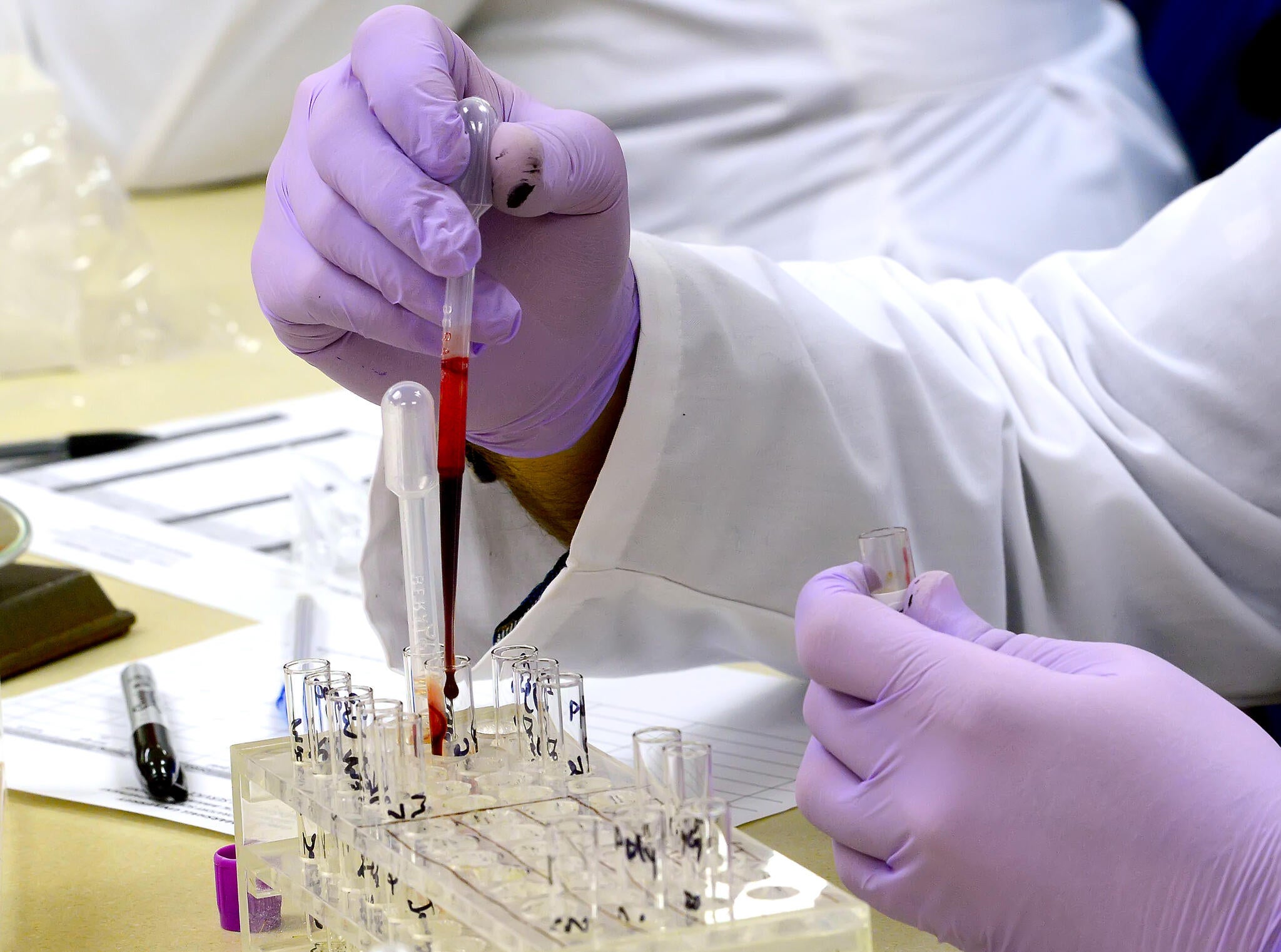

Upon graduation from this program students will qualify to take the national ASCP MLS certification exam, which provides the credentials to work in a clinical laboratory performing diagnostic testing and reporting. Approximately 70% of information doctors use to diagnose and treat patients come from the information obtained from laboratory test results produced by Medical Laboratory Scientists. This is a critical part of health care, as the results obtained by these laboratory tests are a vital tool for physicians in their diagnosis, treatment, and prevention of disease. It is a profession of highly knowledgeable and skilled individuals who perform clinical laboratory tests on blood, other body fluids, or tissue samples. Medical Laboratory Science (MLS) is where basic laboratory science meets the practice of medicine. The Medical Laboratory Science BS degree program is the only undergraduate program in the Department of Laboratory Medicine & Pathology and also in the School of Medicine. Master Of Science (Molecular Medicine and Mechanisms of Disease).Program of Study: Master Of Science (Molecular Medicine and Mechanisms of Disease).Master Of Science (Laboratory Medicine).Program of Study: Master Of Science (Laboratory Medicine).Graduate Certificate In Molecular Medicine (not admitting).Program of Study: Graduate Certificate In Molecular Medicine (not admitting).Doctor Of Philosophy (Molecular Medicine and Mechanisms of Disease).Program of Study: Doctor Of Philosophy (Molecular Medicine and Mechanisms of Disease).Bachelor of Science in Medical Laboratory Science degree.Program of Study: Major: Medical Laboratory Science.This department also has several educational programs ranging from undergraduate, to graduate (master's and PhD) to residency and fellowship programs. The Department of Laboratory Medicine & Pathology provides diagnostic services in several areas with the most common being clinical lab testing and anatomic pathology diagnostics, with a major focus currently on COVID-19 test development and implementation. Finally, students are required to undertake of an experimental research project in a particular specialist discipline.Laboratory Medicine and Pathology Website Faculty Website These specialist modules are selected from a panel of modular option groups which allows customisation of the programme. Microbial Pathogenesis, Immunity and Antimicrobial Resistance.Diagnostic Immunology and Transplantation.Haemostasis: Recent Developments, Diagnosis and Management.Virology, Mycology and Infections in the Compromised Host.Red Cell Structure and Metabolism, Immunohaematology.Pathogenesis and Diagnosis of Cancer in Cellular Pathology and Clinical Cytology.Trends in Microbial Diagnostics, Epidemiological Typing and Healthcare-associated Infections.Pathogenesis of Myeloproliferative and Lymphoproliferative disorders.The remaining taught modules are selected from a panel of modules which address multidisciplinary contemporary themes in Biomedical Science: Advanced Diagnostic Methods and Bioinformatics.Five of these modules are founded on core topics designed to develop students’ knowledge and understanding in the molecular basis and laboratory detection of human disease and to equip them with essential transferable skills for scientific and professional development: This is a fully modularized programme which consists of eight taught modules and an experimental research project. It part-fulfills the criteria for employment as a senior medical scientist (see for further information). This course is accredited by both the Academy of Medical Laboratory Science (AMLS) and the Institute of Biomedical Science (IBMS). Throughout the course particular emphasis will be placed on the importance of the pathology laboratory in the diagnostic process. These skills will enhance employability in a variety of laboratory settings, including hospital pathology laboratories, advanced research facilities and other diagnostic environments. This particular skill-mix is essential for the unique responsibilities of the senior medical and/or research scientist and provides a foundation for lifelong learning in this area. This MSc programme is designed to equip students with a mixture of skills which integrate the basic and applied life sciences, general research methodology and transferrable skills. You are thus strongly advised to apply early for this programme. Applications for places on this course will be assessed promptly when received. Please note, due to the great demand for this course early application is essential.


 0 kommentar(er)
0 kommentar(er)
